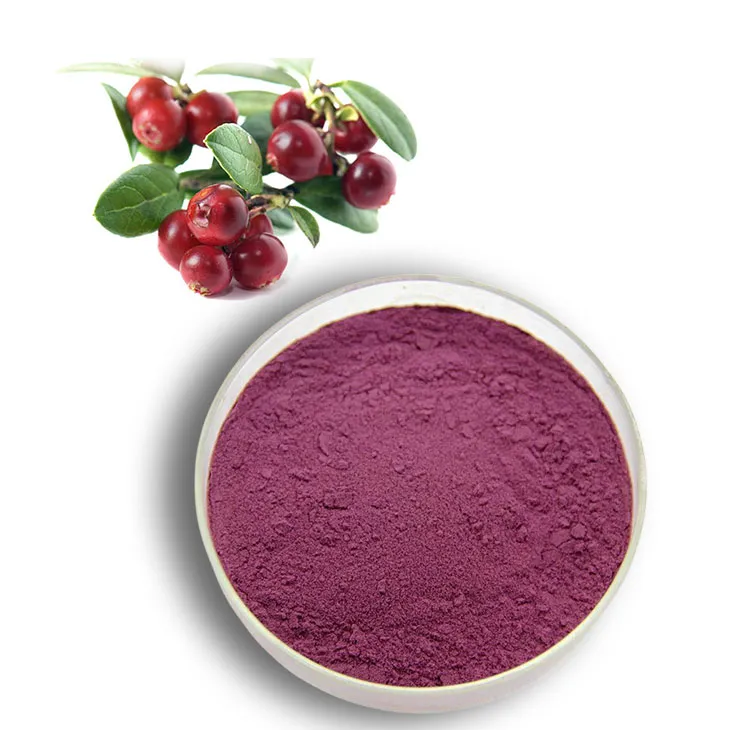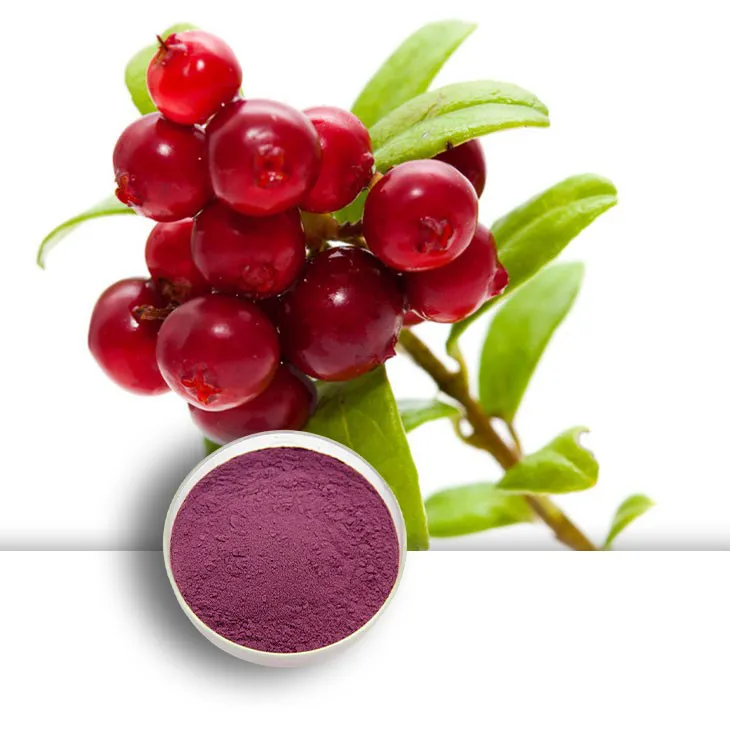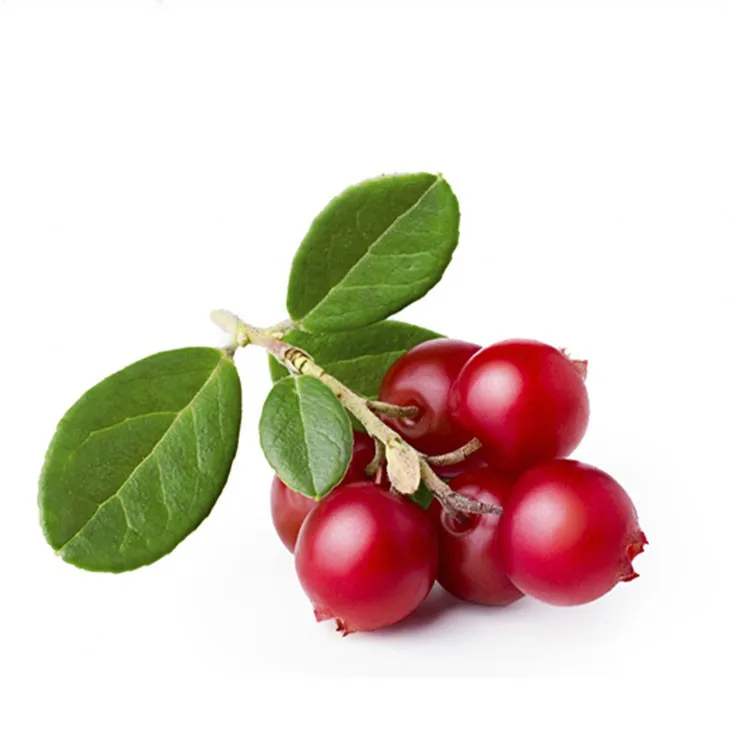- 0086-571-85302990
- sales@greenskybio.com
European bilberry extract can reduce high blood pressure.
2024-11-12

1. Introduction
Hypertension, or high blood pressure, is a widespread health concern that affects a significant portion of the global population. It is a major risk factor for various cardiovascular diseases, including heart attacks, strokes, and heart failure. Conventional treatment methods often involve lifestyle modifications and medications. However, there is growing interest in natural alternatives, and European Bilberry Extract has emerged as a potential candidate in the search for novel solutions to hypertension.

2. What is European Bilberry?
The European bilberry (Vaccinium myrtillus) is a small, dark - blue berry native to Europe. It has a long history of use in traditional medicine for various ailments.
2.1 Habitat and Growth
These bilberries typically grow in acidic, nutrient - poor soils in heathlands, moorlands, and mountainous regions. They are often found in areas with cool climates and high rainfall.
2.2 Nutritional Composition
European bilberries are rich in nutrients. They contain vitamins such as vitamin C, which is important for immune function and collagen synthesis; and vitamin E, an antioxidant. They also have minerals like potassium, which plays a role in maintaining proper heart function and fluid balance. Moreover, they are a source of dietary fiber.

3. Bioactive Compounds in European Bilberry Extract
The potential blood - pressure - reducing effects of European Bilberry Extract are attributed to its various bioactive compounds.
3.1 Anthocyanins
Anthocyanins are the main bioactive components in bilberries. These are powerful antioxidants that give the berries their characteristic dark - blue color. Anthocyanins have been shown to have multiple beneficial effects on the cardiovascular system. They can improve endothelial function, which is crucial for regulating blood pressure. Endothelial cells line the blood vessels and play a key role in maintaining vascular homeostasis. By enhancing endothelial function, anthocyanins can help relax blood vessels, leading to a reduction in blood pressure.
3.2 Flavonoids
Flavonoids in bilberry extract also contribute to its potential health benefits. They have antioxidant, anti - inflammatory, and vasodilatory properties. The vasodilatory effect means that they can widen blood vessels, reducing the resistance to blood flow and thus potentially lowering blood pressure.

4. Mechanisms of Action in Blood Pressure Regulation
Understanding the mechanisms by which European bilberry extract may affect blood pressure is essential.
4.1 Vasodilation
As mentioned earlier, the anthocyanins and flavonoids in bilberry extract can cause vasodilation. This occurs through several pathways. For example, they can stimulate the production of nitric oxide (NO) in endothelial cells. Nitric oxide is a signaling molecule that relaxes smooth muscle cells in the blood vessel walls, leading to widening of the vessels. When blood vessels dilate, the pressure within them decreases, which can help in reducing overall blood pressure.
4.2 Antioxidant Activity
High blood pressure is often associated with oxidative stress. Free radicals can damage endothelial cells and disrupt normal vascular function. The antioxidant activity of bilberry extract helps to neutralize these free radicals. By protecting endothelial cells from oxidative damage, it can maintain their normal function in regulating blood pressure.
4.3 Anti - inflammatory Effects
Chronic inflammation can contribute to the development and progression of hypertension. Bilberry extract's anti - inflammatory properties can help reduce inflammation in the blood vessels. This may be due to its ability to inhibit the production of inflammatory mediators such as cytokines. By reducing inflammation, it can improve vascular health and potentially lower blood pressure.
5. Clinical Evidence
Several clinical studies have been conducted to investigate the effect of European bilberry extract on blood pressure.
5.1 Small - scale Clinical Trials
In some small - scale trials, participants who consumed European bilberry extract for a certain period showed a modest reduction in blood pressure. For example, a study involving hypertensive patients found that those who took a specific dose of bilberry extract daily had a decrease in both systolic and diastolic blood pressure after a few weeks. However, it is important to note that these trials had relatively small sample sizes, and further research is needed to confirm the findings on a larger scale.
5.2 Meta - analyses
Meta - analyses that combined the results of multiple small - scale studies also provided some evidence. These analyses suggested that there may be a beneficial effect of bilberry extract on blood pressure. However, the quality of the included studies varied, and more high - quality, large - scale clinical trials are required to draw more definitive conclusions.
6. Comparison with Conventional Hypertension Treatments
European bilberry extract has some differences compared to conventional hypertension treatments.
6.1 Side Effects
Conventional medications for hypertension often come with side effects. For example, some drugs may cause dizziness, fatigue, or changes in kidney function. In contrast, European bilberry extract, when taken in appropriate doses, is generally considered safe and has relatively few reported side effects. However, it is still important to note that it may interact with certain medications, and caution should be exercised.
6.2 Long - term Efficacy
Current antihypertensive medications have been extensively studied for their long - term efficacy in controlling blood pressure. While European bilberry extract shows promise, its long - term effectiveness in maintaining blood pressure at normal levels is not yet fully established. More long - term clinical trials are needed to compare it with traditional treatments in this regard.
7. How to Incorporate European Bilberry Extract into the Diet
If one wishes to benefit from the potential blood - pressure - reducing effects of European bilberry extract, there are different ways to incorporate it into the diet.
7.1 Dietary Sources
One can consume fresh bilberries when they are in season. However, they are perishable and not always readily available. Another option is to consume bilberry - based products such as jams, jellies, or juices. But it should be noted that some of these processed products may contain added sugars, which could have negative health impacts if consumed in excess.
7.2 Supplements
Bilberry extract supplements are also available. When choosing a supplement, it is important to look for a high - quality product from a reputable manufacturer. The dosage should be followed according to the product instructions or as recommended by a healthcare provider.
8. Future Research Directions
There are still many areas that need further exploration regarding European bilberry extract and its role in blood pressure reduction.
8.1 Larger - scale Clinical Trials
Conducting large - scale, randomized, double - blind, placebo - controlled clinical trials is crucial. These trials would provide more accurate and reliable data on the effectiveness of bilberry extract in reducing blood pressure. They would also help to determine the optimal dosage and treatment duration.
8.2 Mechanistic Studies
Further research into the detailed mechanisms of action is needed. Understanding exactly how bilberry extract interacts with the body's systems at the molecular level can help in the development of more targeted and effective treatments for hypertension.
9. Conclusion
European bilberry extract shows potential in reducing high blood pressure through its bioactive compounds and various mechanisms of action. While there is some clinical evidence to support this, more research, especially large - scale clinical trials, is required to firmly establish its efficacy and safety. Compared to conventional hypertension treatments, it may offer some advantages in terms of side effects, but its long - term effectiveness remains to be fully explored. Incorporating bilberry extract into the diet through dietary sources or supplements may be a viable option for those interested in natural approaches to blood pressure control, but it should be done with caution and under the guidance of a healthcare provider.
FAQ:
What are the bioactive compounds in European bilberry extract relevant to blood pressure reduction?
European bilberry extract contains several bioactive compounds that may be related to blood pressure reduction. Anthocyanins are a major component. These antioxidant compounds have been shown in some studies to have vasodilatory effects, which means they can relax blood vessels. Relaxed blood vessels can lead to a decrease in blood pressure as there is less resistance to blood flow. Additionally, flavonoids present in the extract may also contribute to the overall effect on blood pressure by influencing various physiological mechanisms in the body.
How does European bilberry extract exert its effect on blood pressure?
The extract may work through multiple mechanisms. As mentioned, the anthocyanins can cause vasodilation. This occurs by interacting with endothelial cells lining the blood vessels. They stimulate the production of nitric oxide, which is a signaling molecule that relaxes smooth muscle in the vessel walls. Another way is by reducing oxidative stress in the body. High levels of oxidative stress are associated with hypertension. The antioxidant properties of the bilberry extract can counteract this oxidative stress, potentially helping to normalize blood pressure.
Are there any clinical trials supporting the claim that European bilberry extract can reduce high blood pressure?
Yes, there have been some clinical trials. However, the evidence is not yet conclusive. Some small - scale trials have shown that patients who took European bilberry extract supplements over a certain period had a modest reduction in blood pressure compared to the control group. But more large - scale, long - term studies are needed to fully establish its efficacy and safety for treating hypertension. These trials often measure blood pressure at regular intervals and also monitor for any side effects associated with the use of the extract.
What is the recommended dosage of European bilberry extract for blood pressure management?
Currently, there is no standardized recommended dosage specifically for blood pressure management. Dosage can vary depending on factors such as the concentration of bioactive compounds in the extract, the individual's overall health, and the severity of their hypertension. In general, when used as a dietary supplement, manufacturers may recommend a certain amount, but it is always important to consult a healthcare provider before starting any new supplement regimen, especially for those with existing health conditions like hypertension.
Can European bilberry extract be used as a sole treatment for high blood pressure?
No, at present, it cannot be used as a sole treatment. Hypertension is a complex condition that often requires a comprehensive approach. Lifestyle changes such as a healthy diet, regular exercise, and stress management are fundamental. Medications are also commonly prescribed depending on the severity of the blood pressure elevation. European bilberry extract may be considered as a complementary approach, potentially helping to enhance the overall management of blood pressure when used in conjunction with these established treatments, but it should not replace them.
Related literature
- The Role of Anthocyanins in European Bilberry Extract for Cardiovascular Health"
- "European Bilberry Extract: A Promising Natural Agent in Blood Pressure Modulation - Clinical and Pre - clinical Evidence"
- "Bioactive Compounds of European Bilberry and Their Impact on Vascular Function and Blood Pressure"
- ▶ Hesperidin
- ▶ Citrus Bioflavonoids
- ▶ Plant Extract
- ▶ lycopene
- ▶ Diosmin
- ▶ Grape seed extract
- ▶ Sea buckthorn Juice Powder
- ▶ Fruit Juice Powder
- ▶ Hops Extract
- ▶ Artichoke Extract
- ▶ Mushroom extract
- ▶ Astaxanthin
- ▶ Green Tea Extract
- ▶ Curcumin
- ▶ Horse Chestnut Extract
- ▶ Other Product
- ▶ Boswellia Serrata Extract
- ▶ Resveratrol
- ▶ Marigold Extract
- ▶ Grape Leaf Extract
- ▶ New Product
- ▶ Aminolevulinic acid
- ▶ Cranberry Extract
- ▶ Red Yeast Rice
- ▶ Red Wine Extract
-
Shikone Extract
2024-11-12
-
Eyebright Extract
2024-11-12
-
Lily extract
2024-11-12
-
Marigold Extract
2024-11-12
-
Berberis aristata Extract
2024-11-12
-
Acerola Juice Powder
2024-11-12
-
Cat Claw Extract
2024-11-12
-
Giant Knotweed Extract
2024-11-12
-
Pomegranate Extract
2024-11-12
-
Centella Asiatica Extract
2024-11-12





















